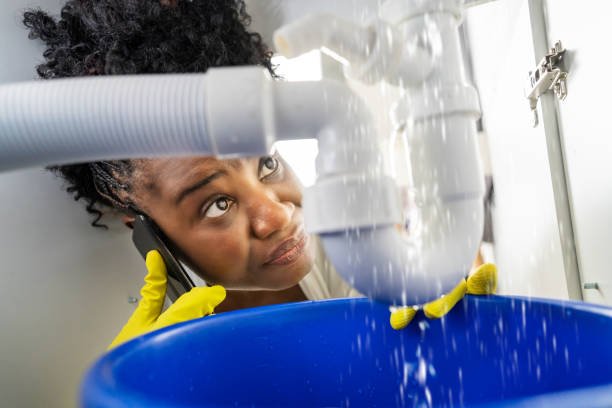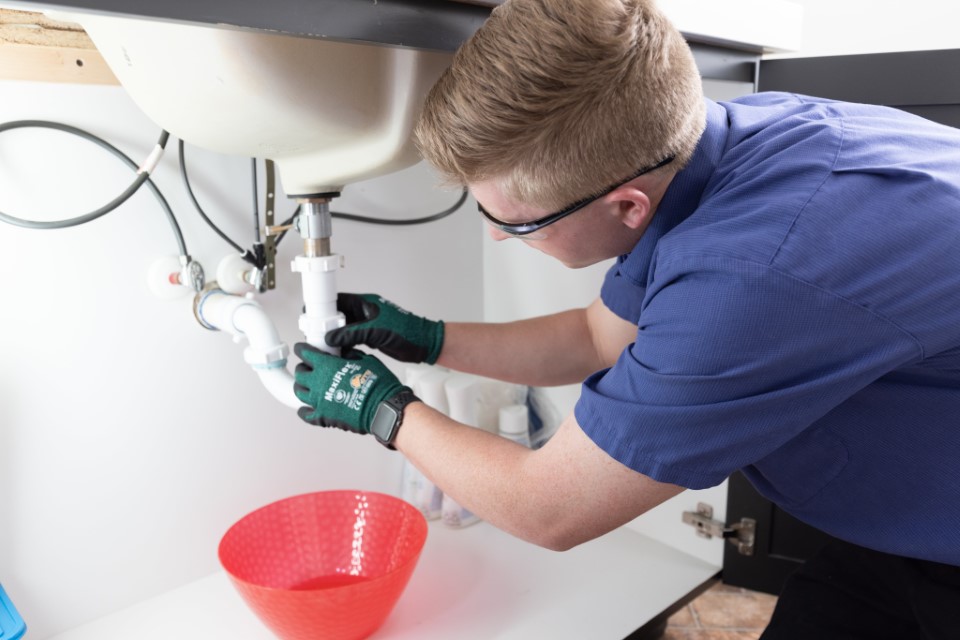Are you currently on the lookout for related information about What to Do During a Plumbing Emergency?

Pipes emergency situations can strike any time, creating stress and anxiety and possible damages to your home. Whether it's a ruptured pipeline, a stopped up drainpipe, or a leaking faucet, understanding exactly how to manage the situation till a specialist plumbing technician shows up can save you from additional problems. This short article provides crucial emergency situation pipes ideas to assist you reduce damage and reclaim control throughout a pipes dilemma.
Turn Off the Water Supply
The first step in any kind of plumbing emergency is to shut down the water. For localized concerns, such as a dripping faucet or toilet, switch off the shutoff near the fixture. In the case of a significant leakage or burst pipe, situate your home's primary water shut-off valve and transform it off promptly. Understanding the area of these valves beforehand can conserve useful time during an emergency situation.
Turn off Your Water Heater
In particular emergencies, such as a ruptured pipeline, it's a good idea to shut down your water heater. This stops overheating or damage to the system when water stops moving. Shut off the power supply to the hot water heater (electric or gas) and allow it cool off to avoid prospective hazards.
Momentarily Stop a Ruptured Pipe
A ruptured pipe can bring about considerable water damages in mins. To mitigate the problem:
Call a professional plumbing technician instantly to resolve the problem permanently.
Have an Emergency Situation Plumbing Package
Prepare a basic pipes emergency situation set to take care of minor problems effectively. Your set needs to include:
Having these tools handy can make a substantial difference in your capability to take care of emergencies.
Unclog Drains Securely.
A clogged up drain can be a discouraging and unpleasant issue. Right here's just how to tackle it:.
If these techniques do not function, avoid using excessive force, as it may aggravate the clog.
Handle Overflowing Toilets.
An overruning commode can create prompt disorder. Here's what you should do:.
Address Tiny Leakages with Momentary Solutions.
Little leaks can rapidly become significant problems if left untreated. Utilize these short-term fixes until professional aid gets here:.
While these solutions aren't long-term, they can help minimize water loss and damages.
Handle Frozen Pipeline Carefully.
In cooler environments, frozen pipelines are a typical emergency. If you suspect an icy pipe:.
Know When to Call a Specialist.
While quick fixes can assist momentarily, specific plumbing problems require prompt professional focus. Call a plumbing technician if:.
Quickly contacting a professional makes certain the issue is solved correctly and stops more problems.
Stop Further Damage.
Taking fast action to lessen damages can save you money and time in the long run. Right here's just how:.
Verdict.
Pipes emergencies can be overwhelming, yet with the appropriate knowledge and tools, you can handle the scenario effectively up until assistance gets here. By switching off the water supply, dealing with little leakages, and making use of temporary fixes, you can reduce damages and maintain your home safe. Bear in mind, these pointers are temporary services; always seek advice from a qualified plumbing professional to handle the root cause of the problem. Preparation and quick thinking are your finest allies in any type of plumbing emergency situation.
8 Helpful Tips for Managing Plumbing Emergencies at Home
If your plumbing system hasn’t failed once, wait for it because almost everyone has a story to tell. Sometimes, it could be simple emergencies such as a leaking pipe, a blocked cistern, or even a big burst pipe. In situations like this, you need to have some handy tips to save you some money and from possible damages.
Take care of minor issues early.
Sometimes, you could have avoided an emergency by taking proactive measures while it was still early. Some major plumbing emergencies can be a result of an ignored minor issue. We recommend that you have items like plumbing tapes and other related items. A plumbing tape can allow you to manage minor leaks before the plumber arrives.
Cut off the water supply.
This tip is essential in almost any type of leakage problem. For problems like minor leakages in the toilet or kitchen, turn off the supply that takes water to the affected pipes. If the leakage is a major pipe, you must shut off the supply valve to the entire building. This will help you avoid flooding your home and neighbors if you share a flat.
Know your plumbing system
Folks typically move into a new apartment without understanding the water supply around the building. This can prove disastrous if a water emergency arises and the plumber is far away. The previous tip will prove useless if you don’t practice this one. More importantly, know where your water shut-off valve is located – you’ll need that knowledge to prevent potential home floods.
Have some common handy tools
There are lots of plumbing emergencies that you can handle without hiring a plumber. That’s why you must keep some tools available always. Some tools that you can use to fix simple plumbing emergencies easily include plumbing tapes, screwdrivers, thread seal tapes, plungers, pliers, tape measures, and rubber gloves.
Insulate your pipes from cold
You’ll save yourself from many plumbing expenses if you protect your water pipes from the cold. This is because of the harmful effects that cold weather can have on your pipes. During winter, your pipes can burst from being overly expected to freezing temperatures. So, make sure insulators are there to keep the pipes working correctly.
Avoid practices that will clog your toilet.
Many people indulge in practices that can damage the plumbing system of the entire building. One of these is when they use their toilet to dispose-off garbage. They flush all kinds of things, such as paper towels, bandages, hairs, female sanitary products, etc., down the toilet. This will block your toilet in the long run, incurring unnecessary expenditures. Dump such waste in the trash instead.
Check your dials regularly.
Sometimes, there could be leakages in your home without noticing them in time. So, constantly monitor your water meter dial. If the dial is reading when there is nobody using water, this is an indicator that there is leaking. Check for leaks immediately. Call a plumber as soon as possible if you can’t find any.
https://www.constructionplacements.com/8-helpful-tips-for-managing-plumbing-emergencies-at-home/

I'm very excited about Expert Tips for Emergency Plumbing Repairs and I hope you enjoyed the blog posting. For those who enjoyed reading our article plz consider to pass it around. I am grateful for being here. Kindly come visit our site back soon.
Suggested Site